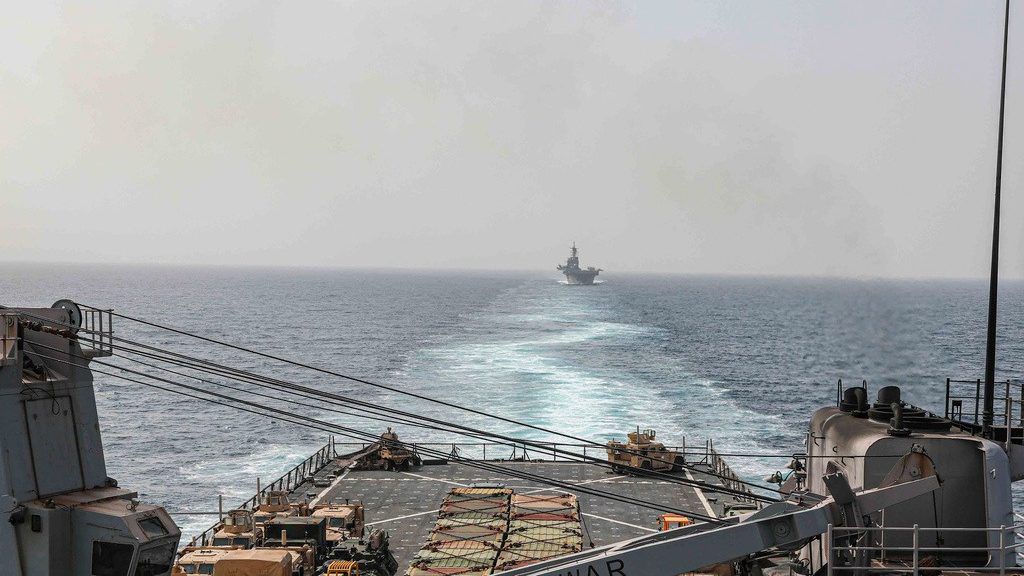Only days after a deadly Red Sea skirmish between U.S. naval helicopters and Iran-backed Houthis, the White House released a stern warning to the rebel forces: let commercial vessels sail by, or be hold to account.
“The Houthis will bear the responsibility of the consequences should they continue to threaten lives, the global economy, and free flow of commerce in the region’s critical waterways,” the White House said in a statement that was also signed by a dozen more allied nations.
“As the President has made clear, the United States does not seek conflict with any nation or actor in the Middle East. Nor do we want to see the war between Israel and Hamas widened in the region,” National Security Council spokesperson John Kirby said Wednesday. ”But neither will we shrink from the task of defending ourselves, our interests, our partners, or the free flow of international commerce.”
Defending global commerce, a senior administration official told reporters Wednesday, is central to America’s national defense doctrine.
“This is not really about the Middle East. This is about the protection of one of the major commerce routes of the world,” the official said.
To date, Houthi rebels have attacked 23 commercial vessels on and around the Red Sea since Nov. 19, ostensibly to disrupt shipments intended for Israel — though it's unclear if all of the attacked ships were Israel-bound.
The Houthis are a Yemeni Islamist movement that broke away from larger Yemen more than a decade ago, established as one side of a nearly decade-long civil war. The movement has sworn opposition against America, Israel and Judaism in general, and stands opposed to most western nations. The movement controls much of western Yemen, and has the backing of other sworn enemies of the west — including Iran, which officials said is supporting the Houthis.
Attacks on cargo ships and commercial vessels began not long after Israel-Hamas war began, when the Houthis swore their support for Hamas. A variety of tactics — including hijacking crews, drones and anti-ship ballistic missiles — have been used against shipping vessels.
On Dec. 30, two anti-ship missiles were fired at a Danish cargo ship flying a Singapore flag. The USS Gravely, a U.S. Naval destroyer, shot the missiles down.
“This is totally unprecedented,” a senior White House official told reporters Tuesday. “Both the use of anti-ship ballistic missiles [against commercial targets], let alone U.S. naval forces shooting them down when they’re traveling mach five.”
A day later, the same ship was attacked again by Houthis — this time with four boats in what an official suspected was either a hijacking attempt or a possible suicide attack intended to sink the ship. When the cargo ship radioed for help, naval helicopters responded, and were beset by small-arms rifle fire. The helicopters returned fire, ultimately sinking three boats — killing the crews — while the fourth boat fled. No U.S. personnel were harmed, and no equipment was damaged.
Though the U.S. and its coalition of international forces are hoping their warning will deter the Houthis, 18 shipping companies have decided to reroute vessels around south Africa, rather than entering ports along the Red Sea, which is expected to significantly impact shipping times and fees through international waters.








